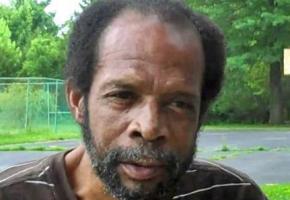He was a death row survivor
In an obituary written for the New Abolitionist, remembers the first death row prisoner exonerated in the modern era of the death penalty.
FLORIDA DEATH row survivor Dave Keaton died this past week at the age of 63. Dave was the first death row prisoner to be exonerated in the U.S.
Dave was part of a group of young men known as the Quincy Five, a group of young Black men accused of murder of an off-duty police officer and robbery of a Tallahassee convenience store. The young men were all convicted based on false eyewitness testimony and coerced confessions.
Dave was the first of the group to be convicted, by an all-white jury, based solely on a confession that was obtained by the use of beatings, threats and lies.
Convicted when he we was 18 years old, Dave spent two years on death row. Physical evidence eventually led to the actual culprits, while the coerced confession was thrown out by the courts upon appeal. Like many prisoners, Dave never received compensation from the state for the time he spent on death row.
After his release from death row, Dave joined the recently founded Witness to Innocence (WTI) in 2005. WTI is an organization based on the membership of exonerated death row prisoners and their families. WTI Executive Director Magdalene Rose-Avila described Dave's activism, "Dave Keaton was the first death row exoneree to begin speaking out against the death penalty. His false imprisonment and the life struggles he faced as an exoneree demands that we abolish capital punishment."

Dave is also known as an accomplished poet and singer, performing around the country as a part of his work. His story was immortalized The Exonorated, the renowned play about death row survivors.
As Kathy Spillman, director of programs and outreach for WTI said of Dave
His life was very difficult. He was sentenced to death row as a teenager. And like all exonerees, he struggled with issues related to being on death row and integrating back into a society that does not provide support for these men and women. Yet he was stoic and very gentle. He was a poet and a singer and whenever he got the chance, he participated in activities against the death penalty so that nobody else had to go through what he did.
First published in the New Abolitionist.


